Fatal beating of Tyre Nichols once again puts spotlight on US police brutality
The young Black man died in Memphis, three days after being beaten by five police officers – all of them African-American – with the violent arrest being caught on video. The ambulance took 22 minutes to arrive on the scene

A protest – “I didn’t do anything!” – a plea – “I’m just trying to get home” – and an anguished cry for help to his mother – resounded across the United States on Friday night, after a shocking video was released showing five police officers beating a young Black man to death. The victim – Tyre Nichols, 29 – died in hospital three days later, from the injuries resulting from his violent arrest.
After nearly a week of refusing to release the tape, the municipal authorities in Memphis, Tennessee finally released the recording. It has since captured national attention, once again placing the spotlight on police brutality in the United States. The video triggered protests – mostly peaceful – in some cities, starting in Memphis – where Nichols died – and continuing to Sacramento, California – where he resided – and to major cities such as New York, Boston and Atlanta. In Washington, D.C., demonstrators defied low temperatures to congregate in front of the White House. As has become routine in the US capital since the 2020 Black Lives Matter protests, shops and office buildings across DC were boarded up to prevent damage.
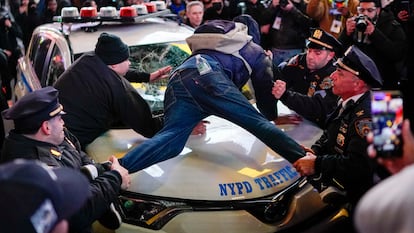
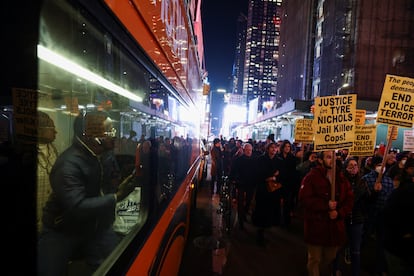

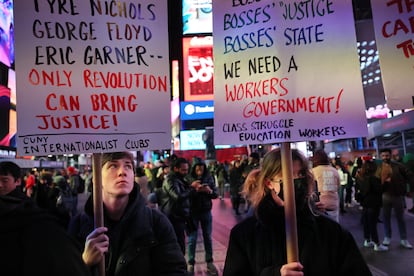
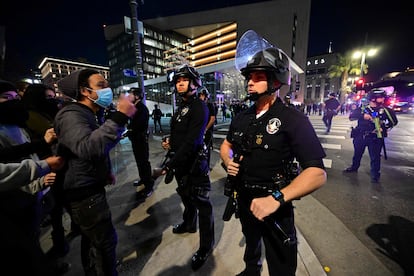
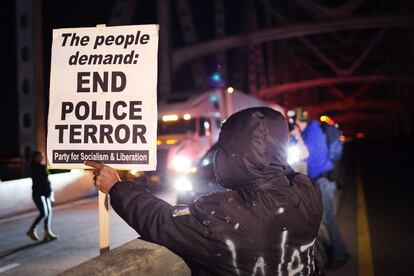
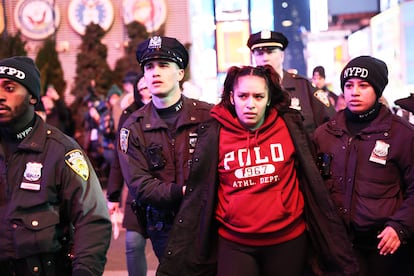
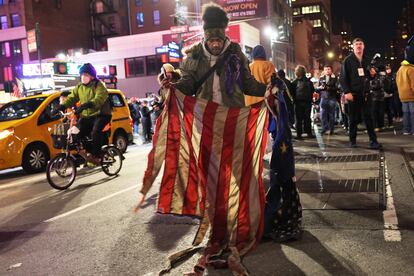
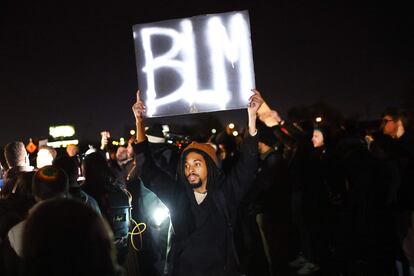
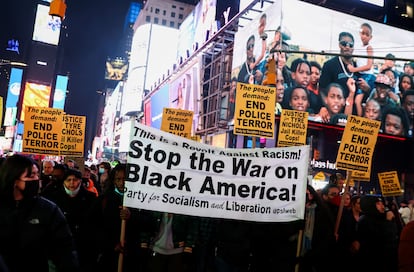
The fatal incident – recorded on video – lasted almost an hour. It was captured by four different cameras, three of them being body cameras that were worn by the officers involved, while the fourth was a security camera perched on a streetlight. All five of the arresting officers are Black, like the victim.
The security camera footage reveals the cruelty of the police officers towards Nichols. The 29-year-old offered no resistance during the three-minute-long beating, which would ultimately end his life. He was kicked in the head at least twice while on the ground, and was pepper sprayed and hit with a baton three times.
In the most disturbing moment, Nichols is seen standing defenseless – at the mercy of the blows – receiving at least six punches while one of the policemen grips his hands. The victim’s family was able to view the recording on Monday. One of the lawyers stated that the police had used Nichols like a “human piñata.”
Following the beating, Nichols is seen lying on the ground, seriously injured. The five uniformed officers – who now stand accused of various crimes, including murder – tell fellow officers who eventually arrive on the scene their own version of the events. The footage shows them joking with each other and walking around, trying to catch their breath.
Apparently, these images were also a surprise to Memphis Sheriff Floyd Bonner, who suspended two of his deputies after seeing them on the recording. He has launched an investigation into the incident.
What the footage does not make clear is why it took 22 minutes between the end of the beating and the arrival of the ambulance. Nichols was then taken to a hospital that was 15 minutes away by car. The cameras also don’t support the version told by the police officers, who claim to have arrested Nichols for “reckless driving.”
On Friday, Memphis Police Chief Cerelyn Davis declared that, after reviewing the video recordings in the area where the events occurred, she could find no evidence that Nichols had broken any traffic rules.
In the first of the videos, two officers are seen stopping the young man’s car. Nichols manages to escape from them, before he is chased down, tackled and tasered. A subsequent chase ends eight minutes later, when reinforcements have arrived on the scene.
The beating took place on a street corner barely 100 feet from Nichols’ mother’s house. A FedEx driver who was fond of photography and skateboarding, Nichols – the father of a four-year-old boy – used to head to the family home for dinner every night.
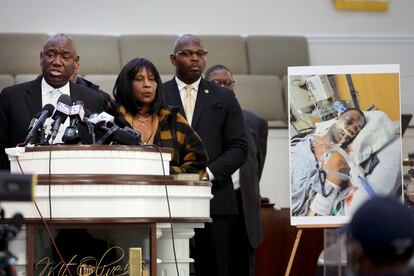
Nichols’ parents have been at the center of a whirlwind of tragedy and media attention this past week. Alongside their lawyer, Ben Crump – who is well-known in the African American community for his defense of civil rights – they are fighting to ensure that their son’s case does not vanish into oblivion. With so many cases of police brutality in the United States, the country has largely become desensitized to the endless cycle of violence.
While speaking to the media, Crump linked Nichols’ case to that of Rodney King – a motorist who was brutally beaten by a group of police officers in Los Angeles in 1991. While King survived, a jury acquitted the policemen. The verdict – widely seen as unjust by the public, as the beating was caught on tape – sparked several days of street riots across the city in 1992.
However, the American public does not need anyone to refresh their memory. After what happened in 2020 – when George Floyd was suffocated to death by the knee of Derek Chavin, a white police officer – the images are still present in the national conversation. The murder of Floyd sparked a wave of anti-racist protests around the Black Lives Matter movement, both within and beyond the United States.
Throughout the week, the authorities and the Nichols family have called for the protests to be peaceful, unlike in 2020. The last to join this call for calm was President Joe Biden: “Like so many, I was outraged and deeply pained to see the horrific video of the beating that resulted in Tyre Nichols’ death,” he said in a statement, released shortly after the footage was made public. “It is yet another painful reminder of the profound fear and trauma, the pain, and the exhaustion that Black and Brown Americans experience every single day.”
Crump has also attempted to defuse tensions. He congratulated the authorities in Memphis for the speed with which they charged the attackers. He hopes this will serve as an example in future cases of police abuse. Crump, however, has also suggested that the proceedings may have been hastened by the fact that the five defendants are Black.
On Friday afternoon, Nichols’ mother, RowVaughn Wells, addressed the men who beat her son: “I want to say to the five police officers that murdered my son, you also disgraced your own families when you did this. I’m going to pray for you and your families.”
She added, “No mother should go through what I’m going through right now. No mother. To lose their child to the violent way that I lost my child.”
Wells also shared the uneasiness of knowing that he was “only feet away,” desperately calling out to her, while she was unable to hear him. “You have no clue how I feel right now.”
The police agents belonged to a special unit called SCORPION, created in 2021 to patrol the areas of Memphis that have the highest crime and insecurity rates. The acronym stands for: Street Crimes Operation to Restore Peace in Our Neighborhoods.
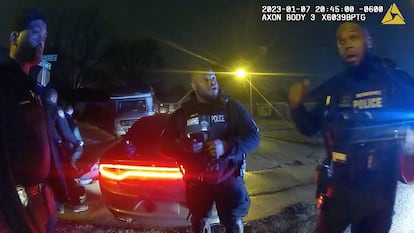
In recent years, these units have been created throughout the country to address rising insecurity. The places in which these squads are concentrated often have high concentrations of racial minorities. One of the family’s lawyers said this past week that this explosive mix results in the brunt of violence and oppression being inflicted on young, non-white people. The lawyer also accused these special units of acting with impunity.
The city’s mayor, Jim Strickland, announced on Friday that SCORPION had been disbanded. Its five indicted members – Tadarrius Bean, Demetrius Haley, Emmitt Martin III, Desmond Mills Jr. and Justin Smith – now face prison terms of up to 60 years each for the crime of murder. They have also been charged with aggravated assault and kidnapping. They spent Thursday night in jail, although, after paying a bond, they were released until trial.
Meanwhile, governing officials in the biggest US cities are holding their breath. They now face the possibility that new protests – which have already begun – could stain the coming nights with violence.
Sign up for our weekly newsletter to get more English-language news coverage from EL PAÍS USA Edition
Tu suscripción se está usando en otro dispositivo
¿Quieres añadir otro usuario a tu suscripción?
Si continúas leyendo en este dispositivo, no se podrá leer en el otro.
FlechaTu suscripción se está usando en otro dispositivo y solo puedes acceder a EL PAÍS desde un dispositivo a la vez.
Si quieres compartir tu cuenta, cambia tu suscripción a la modalidad Premium, así podrás añadir otro usuario. Cada uno accederá con su propia cuenta de email, lo que os permitirá personalizar vuestra experiencia en EL PAÍS.
¿Tienes una suscripción de empresa? Accede aquí para contratar más cuentas.
En el caso de no saber quién está usando tu cuenta, te recomendamos cambiar tu contraseña aquí.
Si decides continuar compartiendo tu cuenta, este mensaje se mostrará en tu dispositivo y en el de la otra persona que está usando tu cuenta de forma indefinida, afectando a tu experiencia de lectura. Puedes consultar aquí los términos y condiciones de la suscripción digital.
More information
Archived In
Últimas noticias
Most viewed
- Sinaloa Cartel war is taking its toll on Los Chapitos
- Oona Chaplin: ‘I told James Cameron that I was living in a treehouse and starting a permaculture project with a friend’
- Reinhard Genzel, Nobel laureate in physics: ‘One-minute videos will never give you the truth’
- Why the price of coffee has skyrocketed: from Brazilian plantations to specialty coffee houses
- Silver prices are going crazy: This is what’s fueling the rally











































